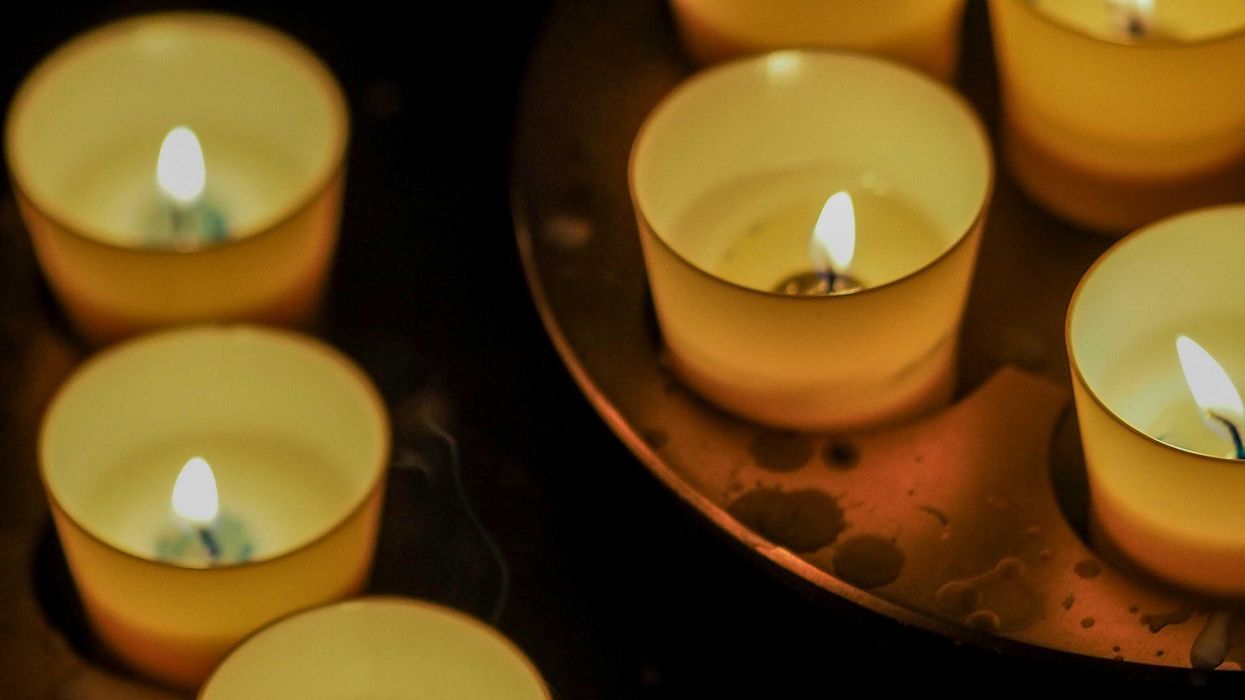“Mommy, look! A girl police officer!!” I will never forget the excitement in my then four-year-old daughter’s voice as she ran to greet one of the many officers stationed outside of our synagogue in Long Island, NY, on a random Tuesday evening. She and her brother were there with multiple other young children for weekly Hebrew school.
I was less excited. The stepped-up police presence was a response to bomb threats against not just our temple but many in the area. Because this was after October 7, 2023, and Israel was at war. Because being Jewish had suddenly become synonymous with being in favor of genocide. Of condoning war crimes. Of being complicit in the systematic starvation of thousands, as more and more Palestinians in Gaza, including women and children, were injured or killed.
As an American Jew who loves my relatives in Israel and supports the Jewish state, I watched with increasing concern as Benjamin Netanyahu attempted to overhaul the judiciary in Israel to avoid facing his own accused crimes and was met with massive demonstrations and protests.
Then came the horror of October 7, 2023. A country that has been under almost constant attack since its inception found itself under attack yet again. Except this time, the man in charge had a very self-serving reason to prolong the war.
You can be a Jew, love Israel, and still vehemently disagree with the actions of the Israeli government. Just as being American does not mean that a person fully supports the actions of the current administration, being Jewish does not mean one endorses the views and actions of the current Israeli government.
Yes, there are Jews who cannot look past the pain and anger of seeing hundreds of innocent lives lost on October 7. They label all Palestinians as terrorists who deserve to see their homeland and people destroyed. Perhaps they forget that Jews also were once a people without a homeland.
There are also tens of thousands of Jews who continue to protest the prolongation of the war in Gaza, call on Netanyahu to stop his campaign, and support a two-state solution. They grieve for the children of both Israel and of Gaza. They believe that every child deserves to grow up in a safe country, whether they are Jewish or Palestinian. I count myself among them.
I am proud to be Jewish. I also support and respect the Palestinian people and their quest for a homeland of their own. And I love Israel. But the indiscriminate actions of Israel’s government, which have inflicted horrific and inhumane amounts of suffering on other people, cannot be justified. Although the latest peace talks have created a renewed sense of hope, the hostages still have not been returned. With each passing day and another news report of further aggressive actions taken by the Israeli government, it becomes increasingly difficult to try to justify the war.
Two years after the October 7 attacks, the horrors of that day have been all but erased in the mainstream media by images of starving children in Gaza. Of NICU babies in need of health care. Of women struggling to protect their families.
Jews observed Yom Kippur last week—our day of Atonement, the most solemn and important holiday of the Jewish year. In the spirit of that holiday, I would ask my fellow Jews to find a way back to a middle ground. To recognize and remember one of the central tenets of Judaism is to love the stranger, to love your neighbor as yourself, and always, above all else, show unconditional love.
It won’t be easy. However, one horrific action cannot justify another. Revenge is not a Jewish value. Instead of resolving conflict, it leads to an escalating series of conflicts. It puts more lives at risk—here in the U.S. and around the world.
As a physician, a wife, and a mother, I pray that the senseless violence ends. Inflicting harm upon those we see as enemies continues a cycle that leads to mutual destruction. I know I am not alone in these beliefs.
My children are still too young to understand the increase in police presence outside of our place of worship. My prayer is that by the time they are old enough to know, those police cars will no longer be necessary. That love for our neighbor will one day return—regardless of religious beliefs. It’s the only way we can ever find our way back to peace.
Dr. Shannon F.R. Small is an Assistant Professor of Surgery at Yale School of Medicine and a Public Voices Fellow of the OpEd Project in partnership with Yale University.




















